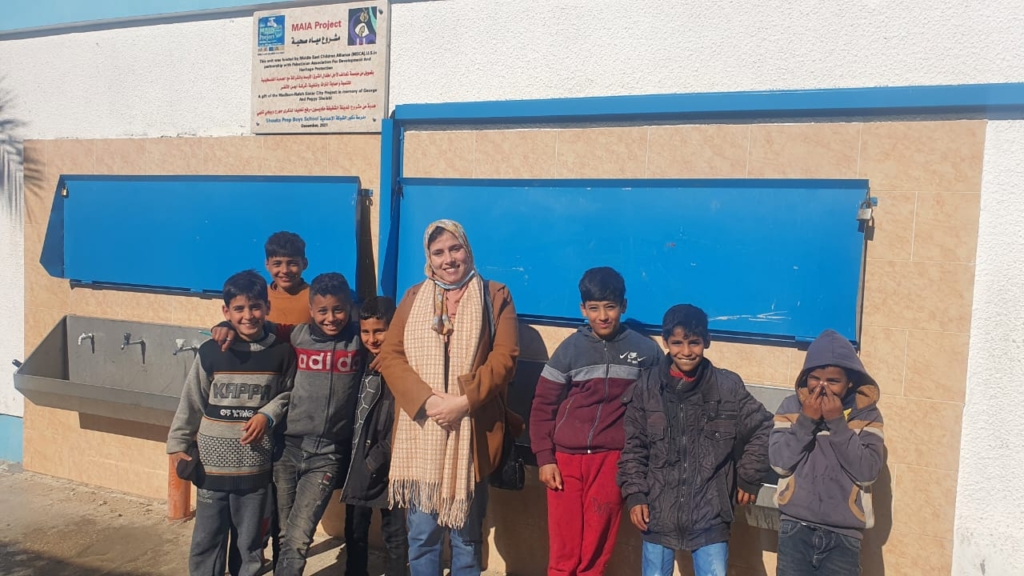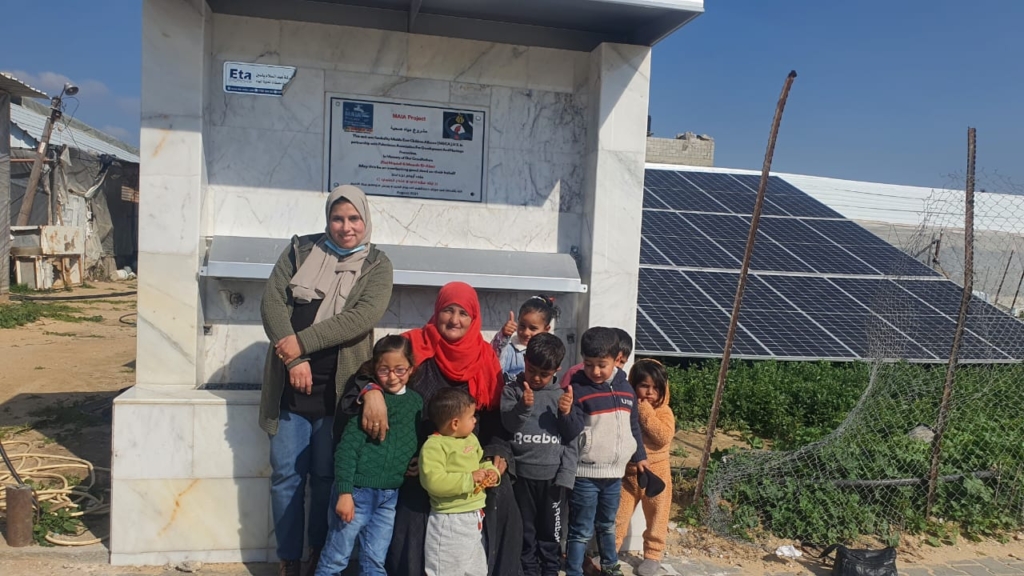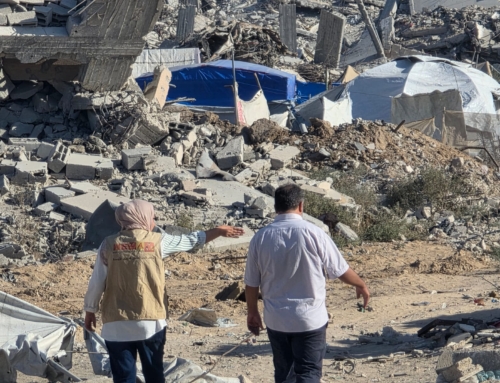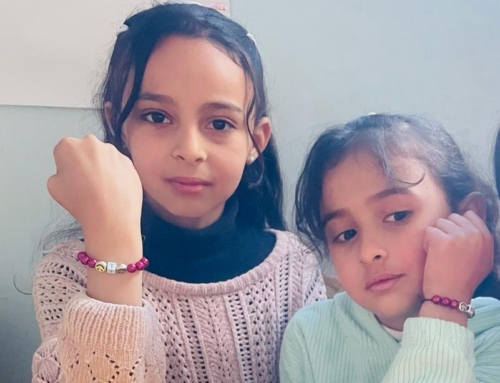
Me visiting one of the schools with a water purification and desalination unit built through MECA’s Maia Project
Hey again, this Ghada Mansi, the Maia Project Coordinator.
Part of my job includes conducting field visits where I visit the different schools to check on the water purification units and make sure they are working properly and providing clean drinking water. It brings me such joy, especially when I recall the before and after situation, and can truly see the difference.
Normally, after each maintenance check, I go to the principal’s office to confirm that everything is working well and to get feedback on the impact of the project. During these visits and chats with the school principals, I almost always walk in as another story is unfolding with the students and their families.
Real life story #1:
This mother, in her thirties maybe, was telling the principal that her son won’t be coming into school today because he needs shoes and his only winter jacket is already wet from all the rain the day before and it has not dried yet.
Real life story #2:
Mosab (not his real name) is an 11 year-old boy from Syria. He and his family are refugees here in Gaza. When I first saw him I was a bit surprised as I was at a girls school. The principal explained to me that he has a disability where he needs constant attention and she could not leave him unattended so she attends classes with him and they come to the girls school to avoid any bullying. On top of all of this, her husband is also sick and in need of care, they do not have proper electricity or hot water, and the mother even said, “I am afraid of the cold … ”.
Mosab is a very bright kid, his life is not easy, but you should have seen him! His spirit is high, always smiling, socializing, and still on top of his studies!
Real life story #3:
I leave Mosab’s smile and his mother’s concern and move on to my next stop. I reach Izebt Beit Hanoun to check in with the principal and more stories emerge. I see students without proper shoes, most wear slippers, and without school uniforms because most cannot afford them. Then, as I’m still processing, a kid comes into the office asking the principal for a notebook as he needs one and I could see in his hands some torn papers he had used to continue his homework.

Me with the grandma and some local children at the water purification unit we built in Khuza’a village
Real life story #4
I end my check-up visit on the other end of Gaza, in Khuza’a. There you can witness the farmers’ life with all family members, including the grandparents, parents, and children all together in the farms working on growing and harvesting their crops. They come together to work on their lands everyday, you could clearly see the love in their eyes for their family and their land.
The grandmother of one family there has told me, “the Maia unit has helped us a lot! We are in a remote area (close to the border) and getting water transported to us is extremely difficult and costly. Before the Maia unit was installed, we had to get animal-driven carts to fill bottles from the nearest desalination plant – which is 8 km away – and bring it back to the farm. ”
She also said that sometimes it wasn’t this huge effect they were looking for, but just knowing that when they get tired as they’re working they’ll have accessible water meant the world.
Conclusion:
Everyone I came across in my visits to the different locations where we have Maia Project units are amazing, dignified, hard-working, and dedicated people. I will not attempt to romanticize the situation by telling you how they keep on smiling and holding their heads up high – of course they do. But the situation in Gaza with the 15-year blockade, the high unemployment rates, lack of access to electricity, inadequate health services and medications, and clean water all time has had its toll on each and every person in the Gaza Strip.
Life still persists, though. I told you of Mosab who still had a smile on his face even though he had to deal with disability, lack of access to electricity and hot water at home. I told you of the child whose family could not cover the expenses of his school supplies and he still went to school and did his homework. I told you about the grandmother who lives close to the border where they face almost daily harassment by the Israeli forces and yet they continue to go out to their land every single day.
No one should have to suffer this way, and it’s on us to continue working until the occupation ends, the blockade is lifted and people can live in freedom with access to their basic needs: hot water, electricity, and adequate health care. Recently MECA worked on distributing warm clothes to children in schools with the support of our different partners, but our work is far from done, we need your support to persist and be able to reach even more children so Mosab’s mother no longer has to fear the cold.





